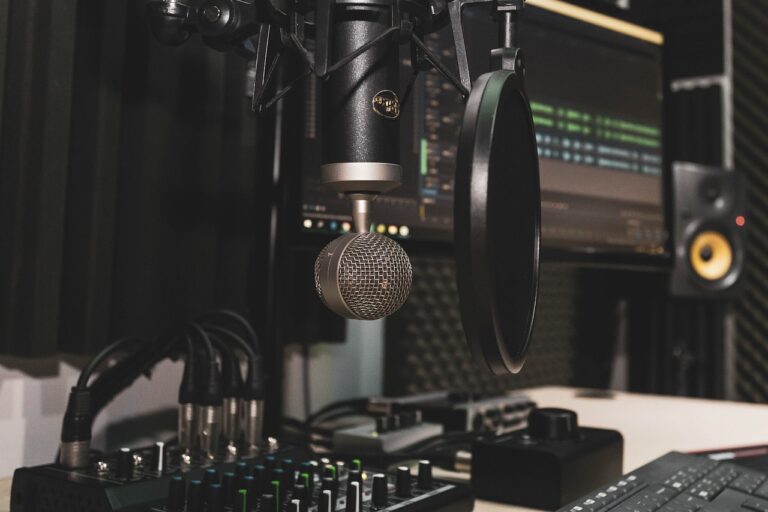Exploring the World of ASMR: A New Genre of Relaxation Entertainment
ASMR, or Autonomous Sensory Meridian Response, has gained significant popularity in recent years as a soothing and relaxing experience for many individuals. The origins of ASMR can be traced back to the early 2000s, when online communities began to discuss and share experiences related to specific sounds and visual triggers that evoked pleasurable sensations. It was during this time that the term “ASMR” was coined to describe this unique sensory phenomenon.
The exact origins of ASMR remain somewhat ambiguous, but it is believed to have evolved from practices such as mindfulness meditation and relaxation techniques. Over time, individuals began to create and share videos specifically designed to trigger ASMR responses in viewers, leading to the widespread online community that exists today. As ASMR continues to grow in popularity, researchers are beginning to study its potential benefits and applications in areas such as stress reduction and sleep improvement.
Understanding the Science Behind ASMR
ASMR, also known as Autonomous Sensory Meridian Response, is a phenomenon that has intrigued scientists and researchers in recent years. While some people experience ASMR as a tingling sensation on the skin, others describe it as a feeling of relaxation and calmness. The science behind ASMR is still not fully understood, but studies suggest that it may be linked to the release of endorphins and oxytocin in the brain.
Research has shown that certain triggers, such as whispering, tapping, and soft sounds, can induce ASMR in individuals. These triggers activate specific regions of the brain associated with emotional regulation and reward processing. The gentle stimuli associated with ASMR are believed to have a calming effect on the nervous system, leading to feelings of comfort and well-being. Despite the growing interest in ASMR, further research is needed to delve deeper into the neurological mechanisms that underlie this unique sensory experience.
• ASMR, or Autonomous Sensory Meridian Response, has intrigued scientists and researchers
• Some people experience ASMR as a tingling sensation on the skin
• Others describe it as a feeling of relaxation and calmness
• Studies suggest that ASMR may be linked to the release of endorphins and oxytocin in the brain
• Certain triggers like whispering, tapping, and soft sounds can induce ASMR in individuals
• These triggers activate specific regions of the brain associated with emotional regulation and reward processing
• The gentle stimuli associated with ASMR have a calming effect on the nervous system
Popular ASMR Triggers
One of the most popular ASMR triggers is whispering. Many ASMR enthusiasts find that gentle and soothing whispers can induce feelings of relaxation and tingling sensations on the scalp and neck. Whispering is often combined with soft speaking to create a calming effect that helps viewers unwind and de-stress after a long day.
Another common ASMR trigger is tapping or scratching sounds. The rhythmic repetition of tapping or scratching noises can have a hypnotic effect on listeners, leading to a sensation of deep relaxation and a tingling feeling that travels down the spine. Many ASMR creators use various objects, such as brushes, wooden blocks, or even fingernails, to produce these satisfying sounds that resonate with their audience.
What is ASMR?
ASMR stands for Autonomous Sensory Meridian Response, which is a tingling sensation that typically begins on the scalp and moves down the back of the neck and upper spine in response to certain triggers.
What are some common ASMR triggers?
Some popular ASMR triggers include whispering, tapping, scratching, crinkling sounds, personal attention, role-playing, and watching someone perform a task with great attention to detail.
Why do people enjoy ASMR?
People enjoy ASMR because it can induce a sense of relaxation, calmness, and euphoria. It can also help some individuals with anxiety, stress, and insomnia.
Is ASMR scientifically proven to be effective?
While ASMR is a relatively new field of study, there is ongoing research to determine its effects on the brain and body. Some studies suggest that ASMR can have real therapeutic benefits for certain individuals.
Can anyone experience ASMR?
Not everyone experiences ASMR, as it is a subjective sensation that varies from person to person. Some people may be more sensitive to ASMR triggers than others.







